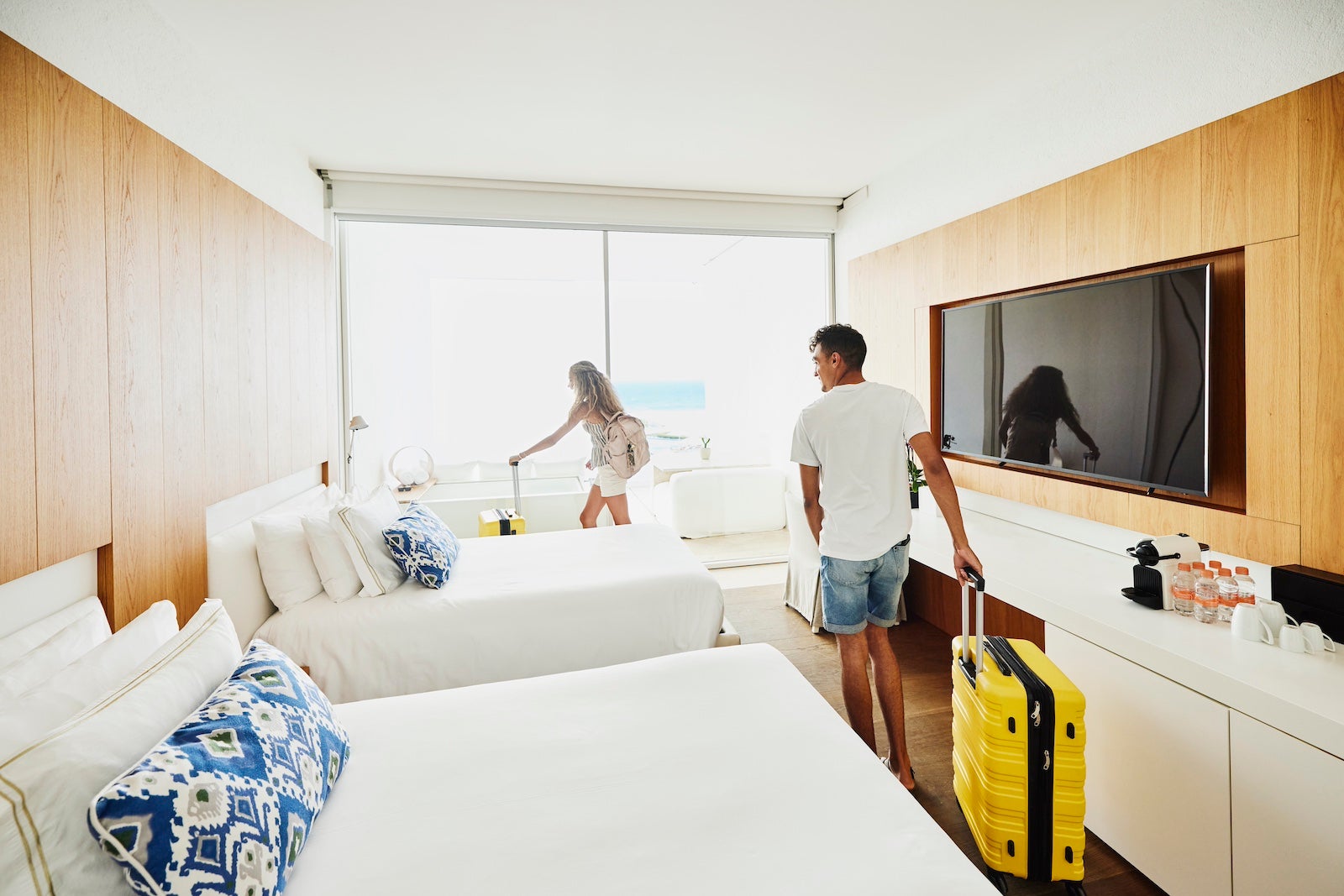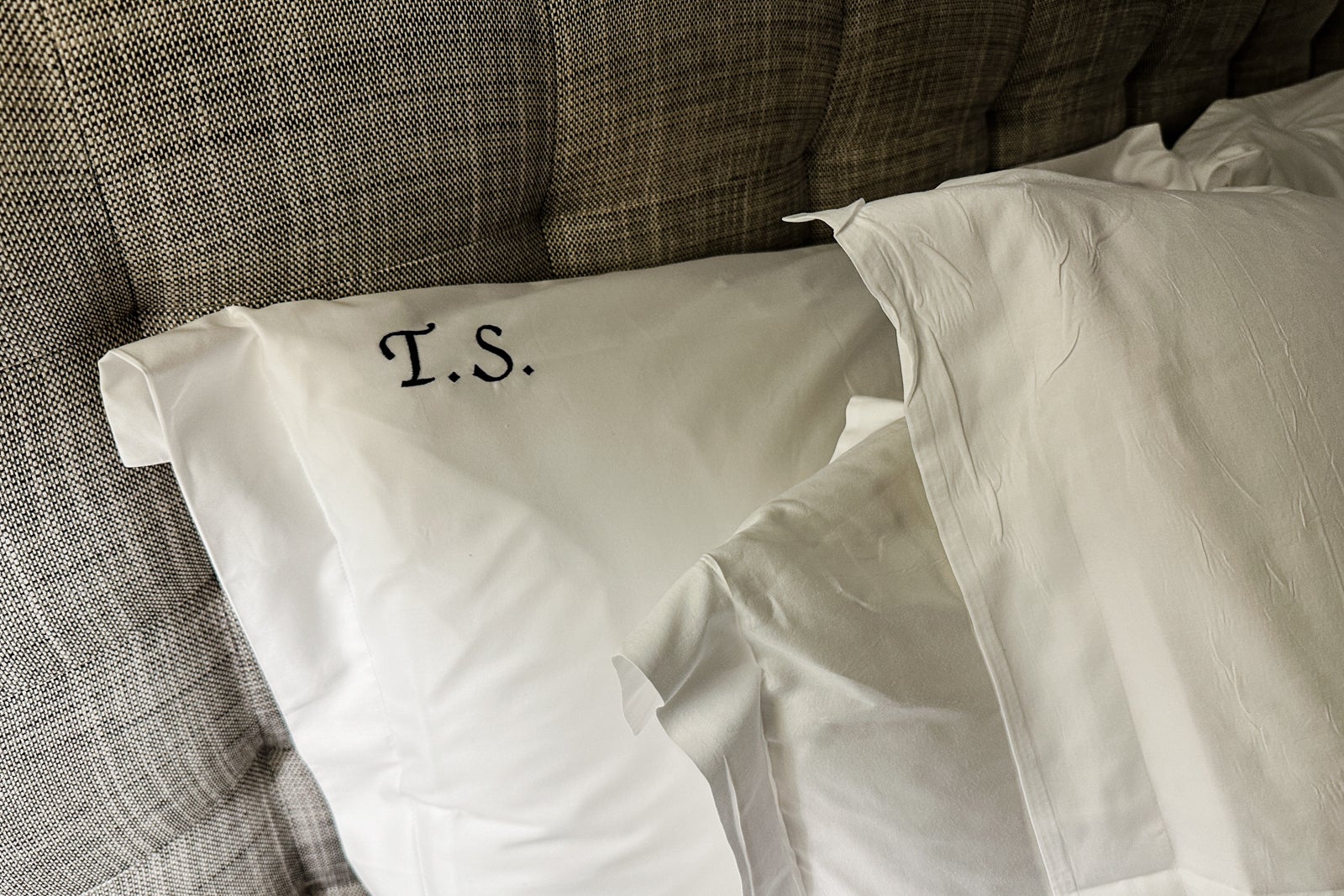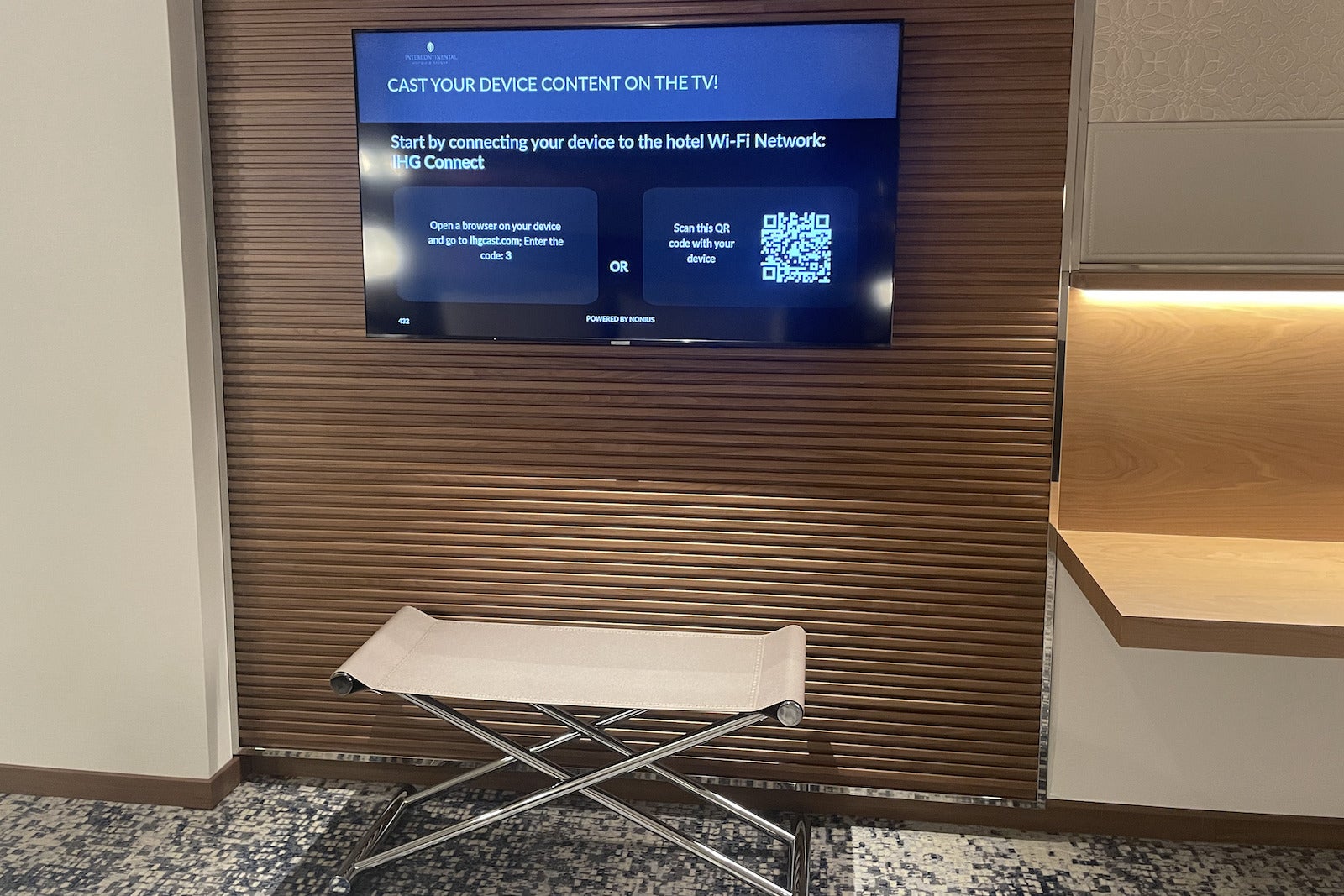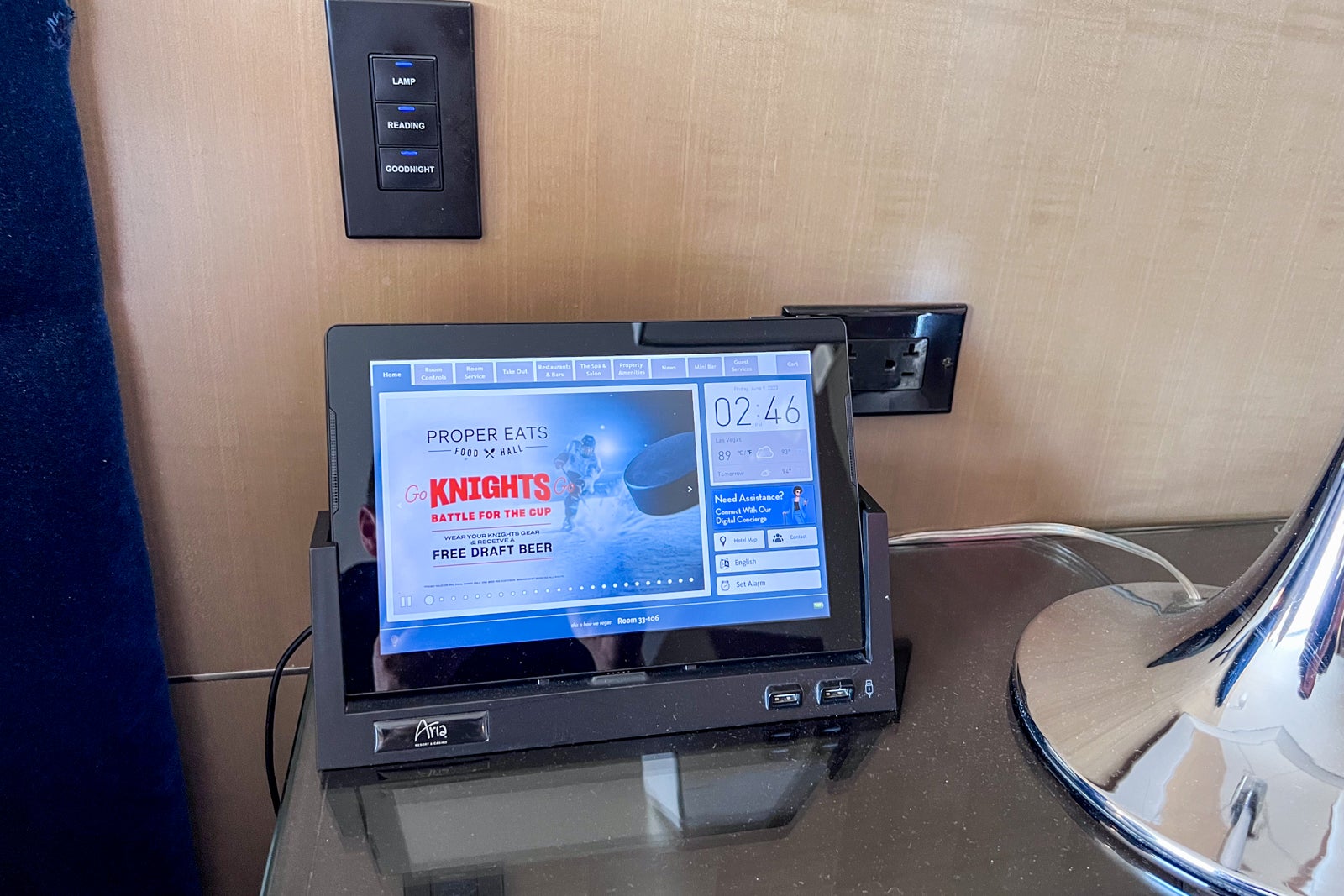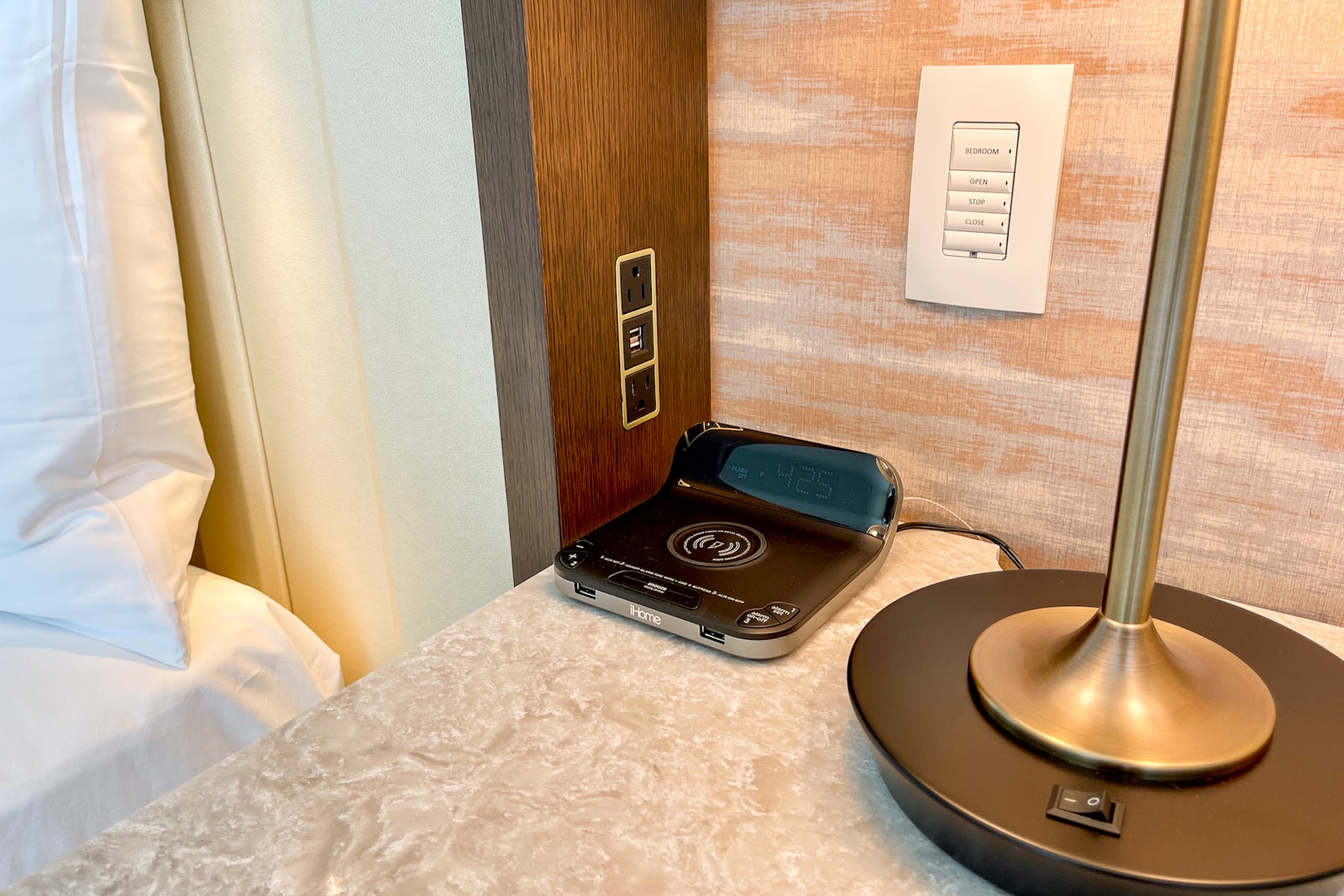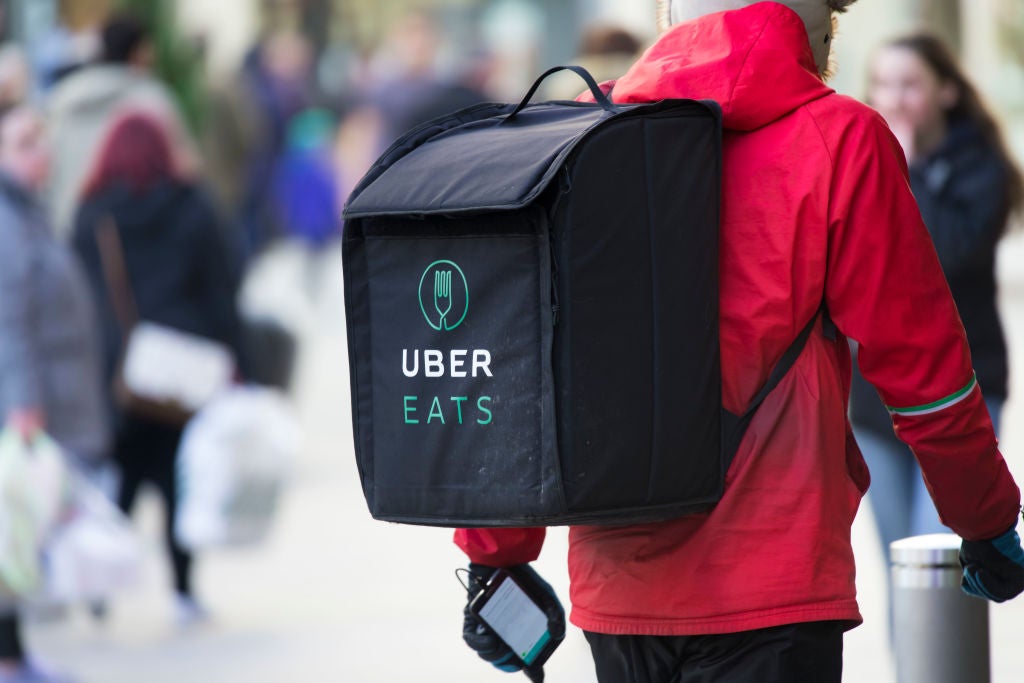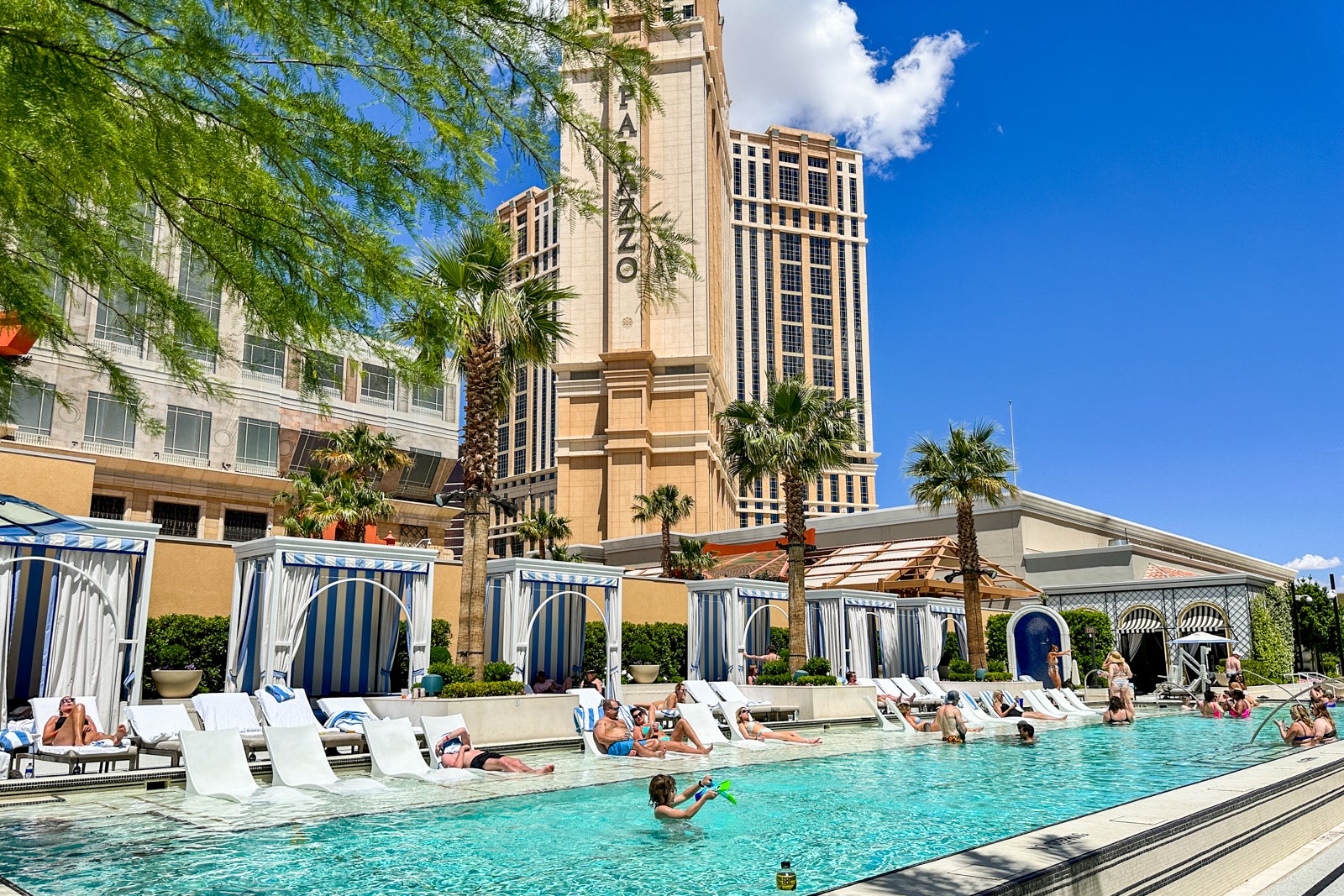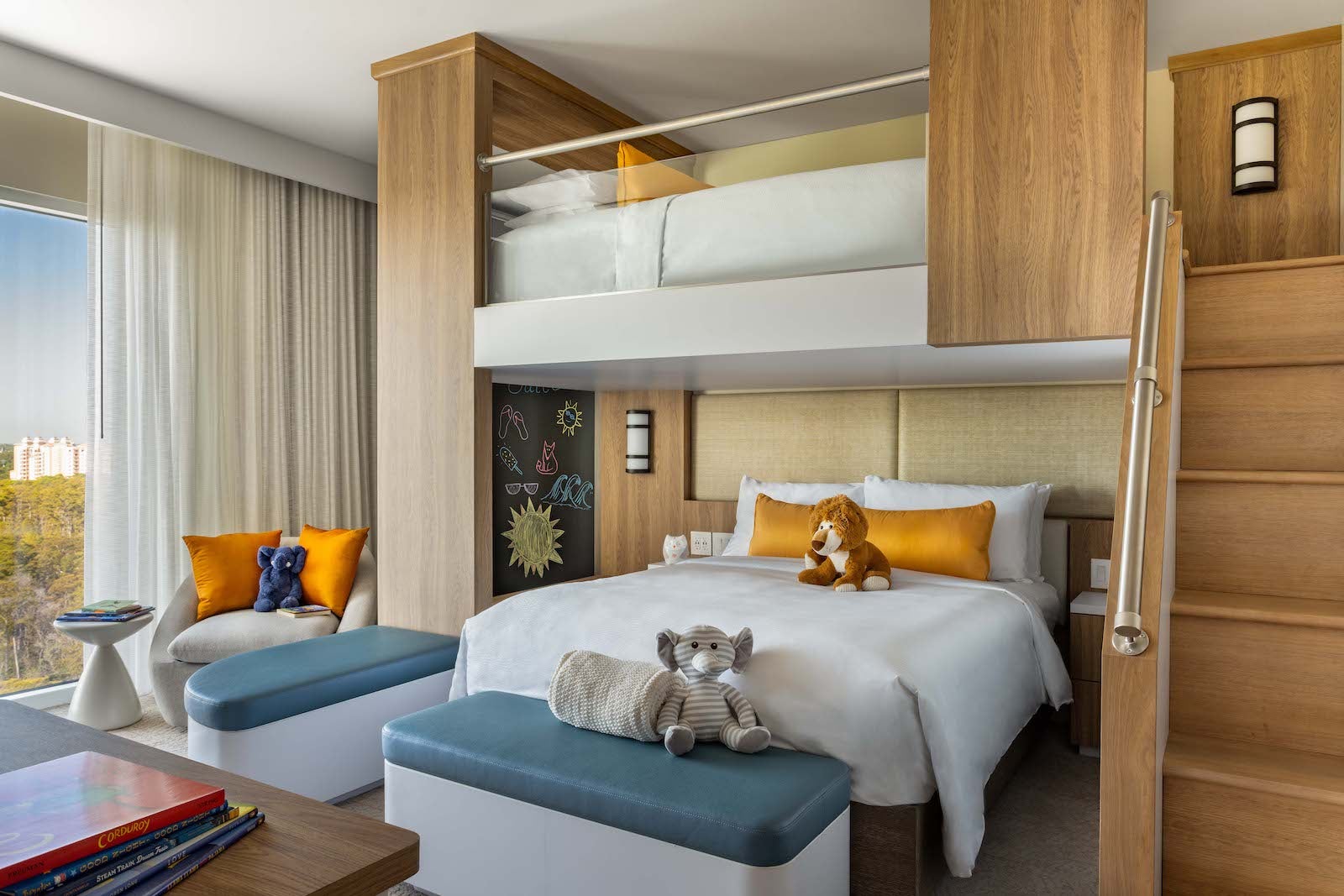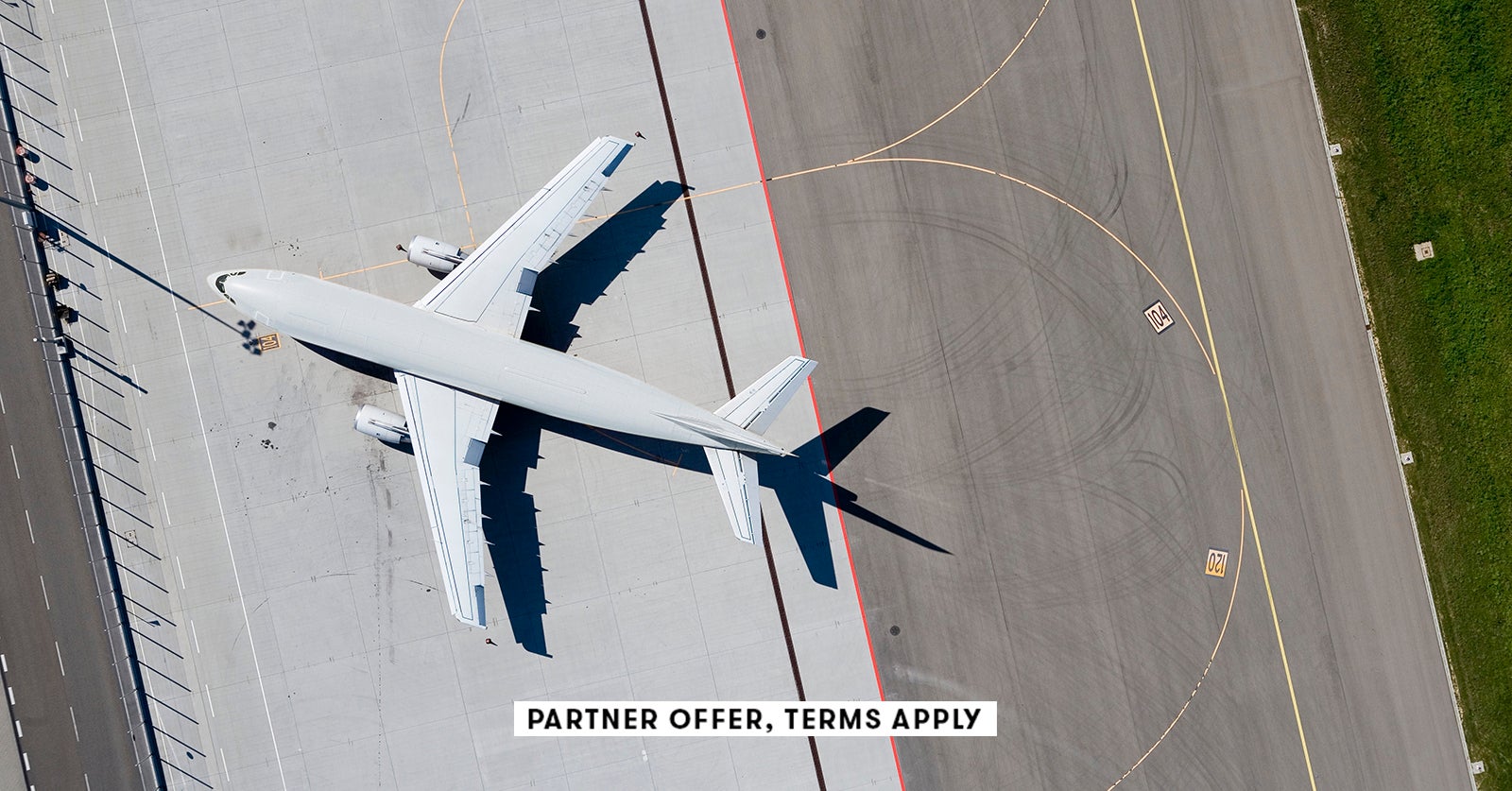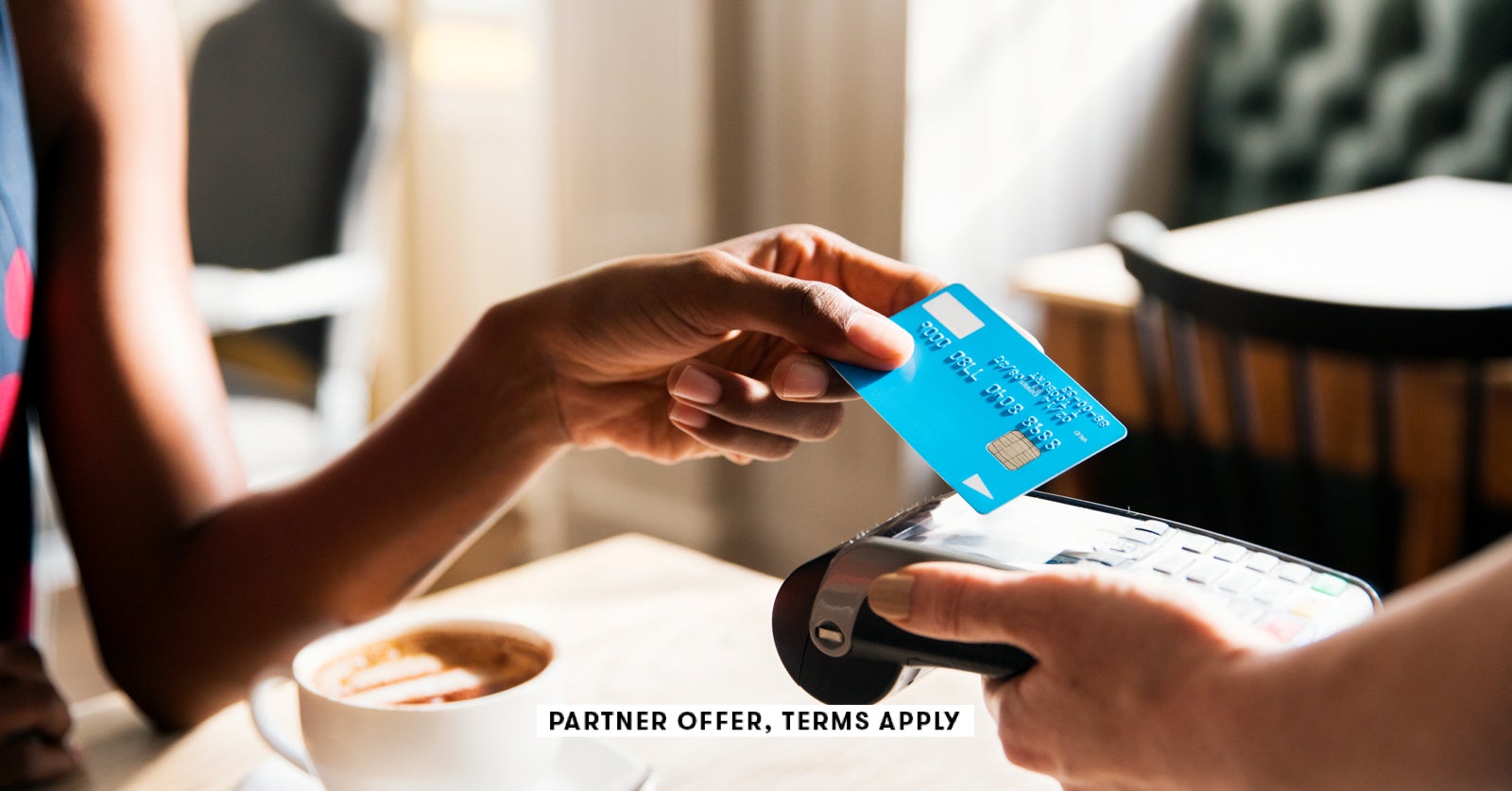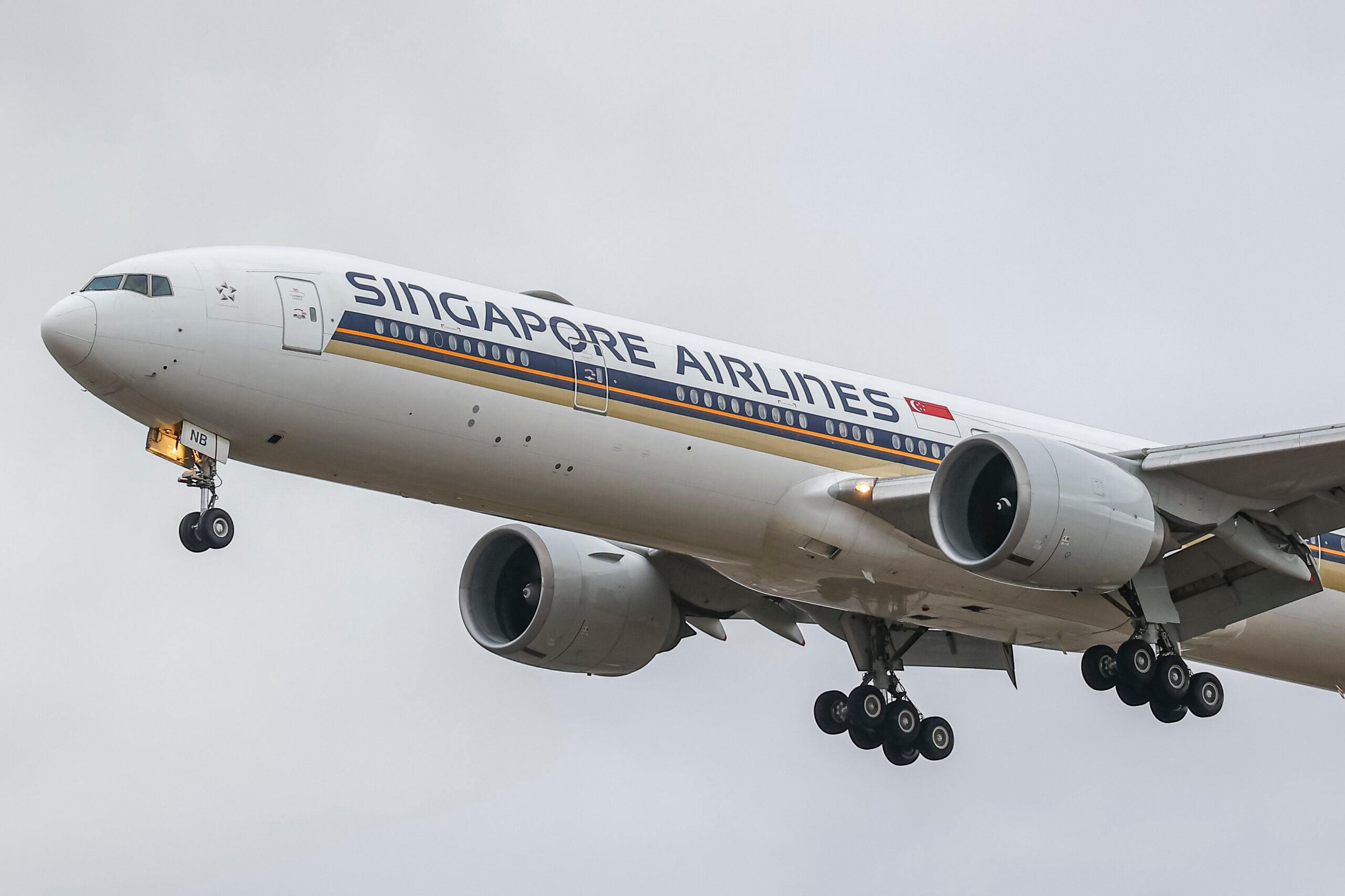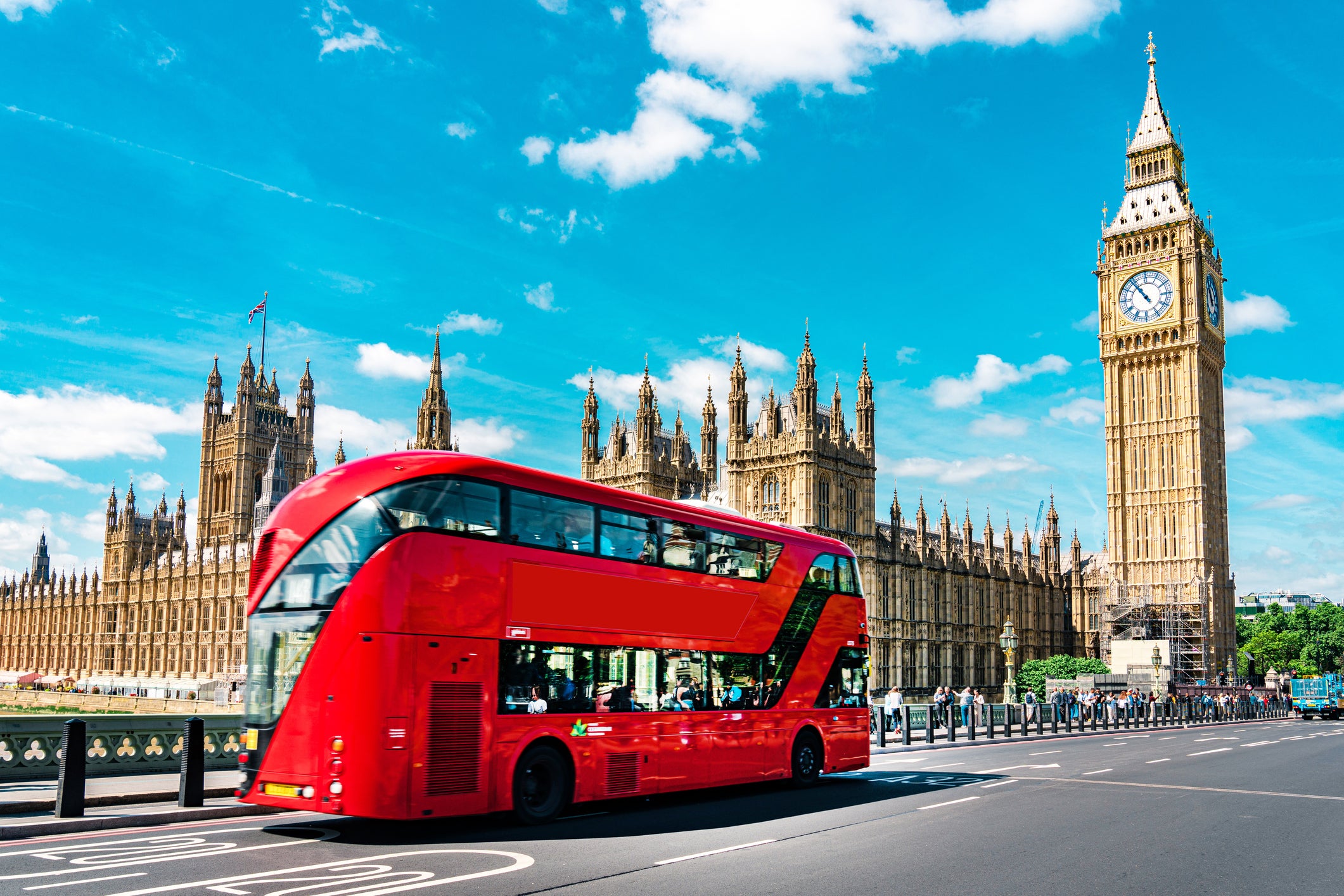Innovations in hotel stays: How to give guests the next-level experience
At any given time, there’s likely at least one — if not many more — TPG staffers staying in a hotel somewhere in the world. That’s a lot of nights … and a lot of opportunities for us to think about the trends we are seeing in the hotel industry.
With all that experience, our team of travel and hotel experts has a lot of ideas about what the next generation of hotels is going to look like — and how older hotels can progress into the tech-forward 21st century.
Sure, we’re all about spalike bathrooms stocked with locally made toiletries, hand-woven fluffy robes and fancy-schmancy lobby bars that become an extension of the surrounding neighborhood. But more importantly, we have been thinking about how hotels can create increasingly seamless and connected experiences for travelers so that stays feel more customizable, more convenient and more accessible.
Here are a few innovations we’ve noticed starting to take hold at hotels around the world (including in our picks of the best hotels that opened in 2023) and ideas we’ve been dreaming of seeing hotels incorporate moving forward.
Hotel apps with functionality that actually meet guests’ needs
Many hotel apps already allow you to make bookings, check your points balance and elite-status progress, and even serve as digital room keys at brands like Marriott and Hyatt. Hilton has already taken things one step further by allowing guests to share digital keys, much like you would a physical keycard. Some hotel apps, like Hilton’s, even let you select your specific room when checking in, which can allow guests with mobility issues to choose accommodations closer to elevators, for instance.
But why not go further? Imagine if, during the digital check-in process, you could order pillows from a pillow menu and have that perfect side-sleeper option waiting on the bed. What if you could pre-stock the minibar with your favorite snacks and beverages?
In today’s ever-connected world, I can control the temperature of my apartment from thousands of miles away. What if we could use our phones to have a hotel room set to our preferred temperature, too? And probably more exciting for the modern traveler, how about letting us sync our entertainment streaming accounts via our profile in the hotel app so it’s easier than ever to pick back up where we left off on the latest Netflix or Hulu shows (more on that later, though).
Having a more functional app could also be good business. Hotels could offer guests more options for upgrades before check-in rather than having staff assign them at check-in. Sort of like how many airlines offer passengers the chance to bid on upgrades, why can’t hotels allow you to do the same with points or cash so that that an unsold suite actually goes to good use?
Hotel stays that are truly personalized
Beyond the room, hotels could use the information they know about guests based on our preferences and past experiences to help guide our travel experiences in the places that we visit. If a hotel already knew that I loved country music and a hoppy East Coast IPA beer, then maybe it could tell me what bars or music venues I’d like within walking distance. What if the app planned a whole afternoon itinerary for me and even reminded me on the way out to take the umbrella from the closet because there’s a 75% chance of rain?

Daily Newsletter
Reward your inbox with the TPG Daily newsletter
Join over 700,000 readers for breaking news, in-depth guides and exclusive deals from TPG’s experts
The Mission Membership program from 1 Hotels already tracks that information to better create tailor-made stays by asking questions — like if I’d rather have feather or foam bedding, a room with a shower or a tub, what my dietary restrictions are and even what kind of milk I prefer — in an easy-to-fill-in online profile. Guest profiles like that could be even further enhanced by allowing concierges and housekeepers to add notes on what they notice or even by allowing users to connect other apps, like Spotify, that could curate a special playlist that’s playing in the room on arrival.
A personalized stay also shouldn’t be exclusive to luxury brands. The big conglomerates can tailor what they know about a guest across their entire portfolio, all the way down to knowing if a guest at a DoubleTree by Hilton prefers a regular chocolate chip cookie or if they need one that’s gluten-free. Or, at a Moxy hotel, perhaps the property could know ahead of time what welcome drink a guest ordered last time and simply ask, “Would you like another margarita as your welcome drink?”
It’s worth noting, too, that these ideas bring up questions about privacy and digital security, especially in places with strict laws on the matter, like in Europe. But the onus on that falls on the brands to still do what they can. It also begs the question: What are we, as hotel guests, prepared to give up in terms of personal data for a more streamlined hotel experience?
Streaming in the 21st Century
While most of us seem to have left bulky remote controls with sticky rubber buttons behind, they’re still ubiquitous in hotel rooms. The minute I get to my room and see one of those, it tells me one thing: Don’t expect to stream last night’s episode of (insert your favorite show, “Real Housewives” for me) you missed while traveling.
In 2024, a lot of us watch our favorite TV shows through online streaming services, and one would hope that we could cast those shows from our phones, iPads or laptops straight to the TV through a service like Chromecast or Apple TV. Or, at the very least, be able to log into our Netflix and Hulu accounts to watch something current rather than scrolling mindlessly for an hour before settling into whatever happens to be on local cable (probably just infomercials past a certain hour).
Luckily, this trend is starting to catch on at more and more hotels, including over 400 Hyatt locations, 1,400-plus Marriott properties and hundreds of Hilton “Connected Rooms,” yet it’s still not the norm. Even certain airlines, like Singapore Airlines and Qatar Airways, allow flyers to curate a playlist of shows or movies to watch and seamlessly access between flights.
It’s time for hotels across the board to make those tech upgrades so that no episode goes unseen and that families on vacation can truly sit back and relax with their favorite movies.
Easy-to-use room controls
These days, it feels like there are more (and more complicated) light switches than ever in rooms — and don’t even get me started on how confusing in-room thermostats can be. But what if more hotels let you control everything from the lights and window shades to the climate and even the do-not-disturb sign right from your very own tablet or smartphone?
Not only that, but these apps or tablets could allow guests to do everything from viewing room service and spa menus to ordering meals and booking treatments.
It’s true that many upscale hotels already have in-room tablets with many of these features (like I experienced last year at Aman New York), but we’re hoping more and more hotels create “smart rooms” where travelers can control everything from a single device and then go a step further to make these tablets the nexus of the entire experience — a sort of source of truth where guests can direct every need or request.
Beyond the practical convenience something like this would offer, it could also be extra beneficial to travelers with mobility issues who might have a more difficult time getting in and out of bed after realizing that a light was left on across the room.
Supercharging rooms
On my first trip in 2024, the contemporary lifestyle hotel I was staying at didn’t have any convenient plugs near the bed — a shocker considering most people seem to charge their phones, which often double as alarm clocks, on the nightstand and have done so for a long while now. It’s time for hotels to reassess the average traveler’s charging needs in terms of where plugs and outlets are located and what kind of plugs and charging devices we use today.
I think it’s safe to say that the majority of us would appreciate more USB plugs in rooms, including the increasingly more popular (and now legally required in some countries) USB-C ports. Last year at the Rosewood London, I encountered my first in-headboard USB-C charger and was so excited since that’s the only type of cord my iPad came with.
But while adding new fixtures might be an issue, hotels could even take the relatively inexpensive step of putting basic charging pads in rooms (it would just require using one of the room’s outlets) so that travelers could even leave their own wires at home. That would likely go a long way with travelers, as charging cords are among the most-forgotten items in hotel rooms.
Digital tipping
In a society that keeps getting further and further away from cash, tipping helpful service workers can be a challenge. So, why not allow guests to tip using credit cards or an app, sort of like other services we use, such as ride-hailing and food-delivery options?
Wyndham launched a new program at participating hotels allowing for guests to leave digital tips, and more brands have said they’re looking into the service, which makes sense as some 82% of Americans used digital payments in 2021, according to consulting firm McKinsey & Company.
Having digital tipping on a property would allow guests more opportunities to leave gratuities for housekeepers, bellhops or luggage porters, staff members who deliver things to the room, concierges and more. And, in fact, as TPG previously reported, people are five times more likely to tip if they have a mobile platform to do so, according to Bené, the mobile tipping platform that Wyndham partnered with in 2022.
We live in a tech-forward world where apps really do help us manage most elements of our lives, including our money, and service workers could benefit significantly from more opportunities to be tipped without having to carry around cash in a world that’s becoming increasingly cashless.
But by giving guests a convenient way to tip, we also want to ensure that hotels never deploy mobile tipping platforms as a way to skimp on raising wages for housekeepers and other staff members who keep the place running.
More partnerships with food delivery services
At hotels without room service, it can be tricky to open up a food delivery app like Uber Eats, Seamless or Grubhub and decide what the best nearby restaurants are and whether or not the food will be delivered to the lobby or straight to the room. That’s why we’d love to see more hotels partner with these platforms to make food delivery an easier process and, in some cases, one that could replace traditional (and expensive) room service.
Right now, there are already a handful of these partnerships, like Sonesta’s tie-up with Grubhub. Guests will notice QR codes placed throughout select extended-stay properties, which automatically populate the hotel information in Grubhub, along with drop-off instructions for the driver. Tools like this can save some hassle for everyone, from guests to hotel receptionists, and keep us all full and happy.
However, we’d also love to see these partnerships take it one step further and include new integrations into hotel loyalty programs where, perhaps, guests get discounts on orders during stays, can redeem points for meals or even have the option to select credits for food delivery at hotels for reaching a certain milestone or elite status.
A lot of work has already been done in the space, including tangential offerings like Marriott’s link-up with Uber Eats, where guests can earn 6 Marriott Bonvoy points per dollar while placing an order during a stay at a Marriott Bonvoy hotel, but there’s still more that could happen.
Build-your-own resort fees
Let’s be frank: Resort and destination fees should just go away as a whole. But since that’s not likely to happen, we should all be able to make sure that money actually goes to something we use at the hotel. We could go on and on about all the pesky resort fees we’ve seen over the years, but maybe it’s time they go a little more a la carte.
For example, if you’re not someone who ever uses the hotel gym, maybe you could axe that from your offerings and get a credit for parking instead. If you visit a resort where a pool is closed in the colder months, maybe you can choose access to basic spa amenities like a sauna or steam room. What if a destination fee included passes for public transportation so you can actually go experience the destination you’re paying for rather than a discount at a museum you’ll never visit? And let’s just be clear: Wi-Fi should be included in the room rate at this point, not tacked onto an amenity fee as a reason for upcharging guests.
Over the last few years, there’s been much chatter on the subject of a la carte pricing structures, with many asking if that’s just a resort fee hidden in plain sight. The answer is yes, so let’s call it what it is and at least decide how we spend that money.
Related: Here are ways to avoid paying resort fees
Furthermore, many hotels claim that the resort fee includes digital concierge or butler service, and that would be fine if their apps were able to do many of the things we talked about above, like being able to have your room stocked with your favorite treats or offering the ability to help plan a day out. But given the limited functionality of most hotel apps now, being told that you’re paying for the convenience of using them is almost an insult.
More family-focused conveniences
One area where we’d love to see some real innovation is in what hotels have to offer families. Our TPG staffers with kids frequently have the same complaint: Most hotel rooms are truly not functional for the entire family. Sure, a suite might be marketed as big enough for the whole gang, but if it’s just one big space with a bed and a pullout couch, is it really, truly a suite?
Hilton has been a pioneer in adding family-friendly connecting rooms that guests can select ahead of time, but many hotel chains leave room assignments up to chance, and your only recourse is to call up in advance or make a note in your reservation requesting connecting rooms.
However, we’d like to see family offerings be taken to the next level with more activities for kids (like a scavenger hunt around the property), more common sense pricing at restaurants, such as lower-priced breakfast options for kids who need to start their day with a meal but probably shouldn’t be picking from a $20 buffet where they might eat half a pancake, or just some in-room design choices like Murphy beds or bunk beds in a separate alcove that give both parents and kids more privacy and comfort.
That last suggestion is a trend that’s already taking off at theme park hotels like Dollywood’s newest resort that just opened in November, the JW Marriott Orlando Bonnet Creek Resort & Spa and the new Villas at Disneyland Hotel.
More flexible check-in and checkout times that make sense
Back in the days of Starwood Preferred Guest, top-tier elite members (sometimes) had the opportunity to take advantage of a program called Your24, which essentially gave a guest a room for 24 hours that made the most sense for them. For example, if their flight landed early in the morning, they could check in and have that room for a full 24 hours before checking out around the same time the following morning (or on a subsequent morning). It makes a lot of sense, especially for long-haul travelers taking overnight flights to Europe or Asia that land early in the morning.
However, most guests don’t get a full 24 hours in a room, even at some of the most expensive hotels on the planet. Travelers could benefit greatly if more hotel brands offered flexible check-in and checkout times so that they could take full advantage of the rooms that they are paying for.
I’m sure that’s a logistical nightmare for hotels, but Peninsula Hotels already does it with its Peninsula Time program, allowing guests to check in as early as 6 a.m. and check out as late as 10 p.m. The Hoxton hotels do it, too, giving guests who book directly the opportunity to arrive by 1 a.m. and check out by midnight.
Travel is fluid, and we challenge hotels to be a little more as well.
Looking forward
Whether people travel once a year or once a week, travelers want and deserve a seamless experience where they can quickly get into a comfortable hotel room to rest and relax.
We challenge hotels to take a deep look at the current customer experience, from check-in to checkout, and find all the little moments we see that can be improved upon, customized and modernized for the travelers that we are in 2024.
The hotels that can adopt innovations like these — while also giving guests a more personalized experience — will be the brands that earn back their investments with sky-high guest satisfaction ratings and more loyal travelers who know that every stay will be a better extension of the last.
Related reading:

